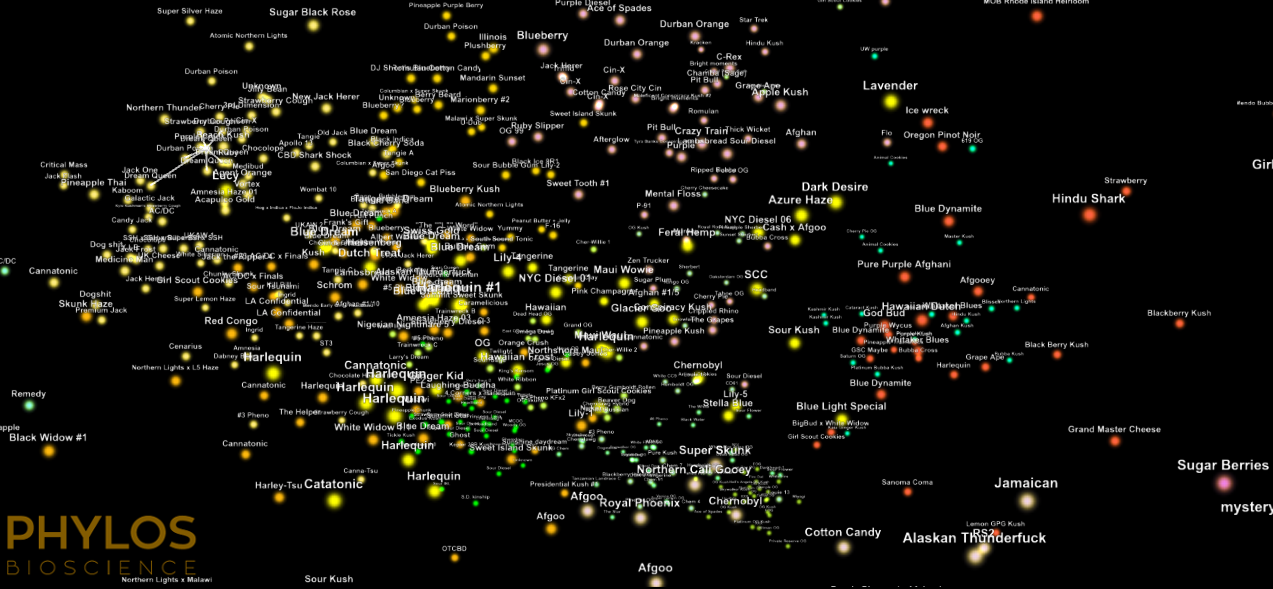Originally published on MintPress News.
PORTLAND, Oregon — An innovative digital map of the cannabis genome could help deepen scientific understanding of the plant, and it may also protect it from greedy corporations.
That’s the hope of Phylos Bioscience, a Portland-based company which recently launched The Phylos Galaxy. The app offers a 3D visualization of the relationship of hundreds of strains of cannabis, from the popular varieties sold in Oregon’s legal dispensaries to indigenous varieties found globally known as “landrace strains.”
Types are linked by their hereditary sequences to ancestor strains and visually grouped into “tribes” by their chemical and genetic similarities.
On April 23, Carolyn White, sales and marketing manager at Phylos, told the Willamette Week that her organization “set out to bring more knowledge and transparency to the industry” with the Galaxy and other efforts to document the diversity of the cannabis genome.
Growers and consumers will soon be able to pay a fee to have any cannabis sample sequenced by the company.
Phylos’ founder and chief scientific officer, Mowgli Holmes, spent years documenting marijuana’s DNA and advocating for a better scientific understanding of this beneficial plant before launching the Galaxy app on April 20. Speaking at TechFestNW in August, he said Phylos’ research offers many potential benefits to cannabis users:
Holmes said mapping the cannabis genome will allow his team to better understand the medicinal and recreational components of the plant, and allow people to make better use of them. The project will allow for the creation of targeted medicines that are even more effective than current medicinal marijuana.
Last year, when California cannabis breederspatented a marijuana gene for the first time, Vice News warned that it could lead to a“patent war” in the cannabis industry as corporations and growers fight for ownership of the plant.
Persistent rumors suggest that agribusiness giant Monsanto is researching marijuana, although the company dismisses these claimsas “an Internet rumor.”
Whether or not the seed-trade behemoth gets involved, marijuana is becoming big business. A secondary goal of Phylos’ research is to push more of the marijuana genome into the public domain, where it can benefit everyone rather than just wealthy investors.
“We think Big Pharma and Big Ag will be the primary audience after patents, and it will likely require writing new DNA into the plant,” White said.
She said Phylos believes patents benefit only large corporations, not everyday growers and consumers. “None of the folks at Phylos really see patenting as a viable tool for the average breeder.”
According to Holmes, there’s another potential benefit of the project: increasing the scientific literacy of cannabis aficionados. At TechFestNW, he declared: “It’s probably the first time that civilians can really geek out over data visualization.”
